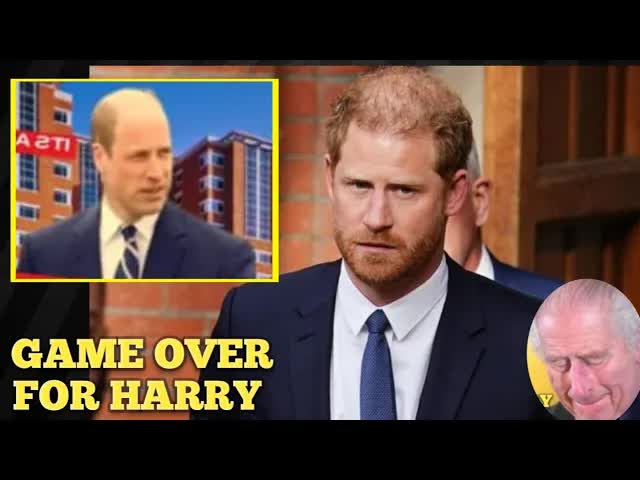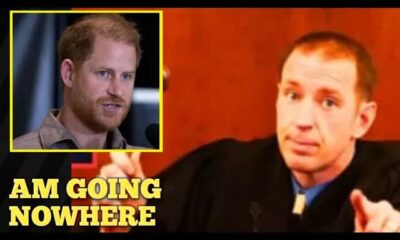The News
King Charles Takes Bold Step: Prince Harry and Prince Andrew Removed as Councillors of State
In a significant move that has captured public attention, King Charles has officially updated the Letters Patent, a key document that designates who can serve as Councillors of State on behalf of the Sovereign.
This change has resulted in the removal of Prince Harry and Prince Andrew from their positions, marking a pivotal moment in the monarchy's evolution.
So, what exactly are Councillors of State?
They are senior members of the Royal Family entrusted with the responsibility to carry out royal duties when the Monarch is unavailable due to illness, travel, or other commitments.
These Councillors can sign official documents, attend Privy Council meetings, and even receive credentials from new ambassadors.
Traditionally, this role has been filled by the Monarch's spouse and the next four individuals in the line of succession who are over 21 years old.
Under Queen Elizabeth, Prince Harry was listed as a Councillor of State while living in the UK, alongside Prince Andrew, despite his stripped royal duties.
However, with Harry now residing permanently in the United States and having stepped back from royal responsibilities, it became impractical for him to retain this title.
The same reasoning applies to Prince Andrew, whose current situation also warranted his removal.
King Charles's decision to revise the Letters Patent reflects a thoughtful understanding of the modern royal landscape.
By limiting the role of Councillors to only those working royals based in the UK, he has made it clear that only active members of the family will hold such responsibilities.
This includes Prince William, Princess Beatrice, and Princess Eugenie, who are all actively engaged in royal duties.
This strategic move serves several purposes.
Firstly, it strips away the last remnants of official status that Prince Harry had clung to, despite stepping back from royal life.
Being a Councillor of State was one of the few privileges he retained due to his place in the line of succession.
With this update, King Charles has decisively established that if one chooses to step away from royal duties, they must also relinquish the associated privileges.
Additionally, the practicality of this decision cannot be overstated.
With Harry living thousands of miles away, it simply doesn't make sense for him to remain a Councillor of State.
His geographical distance would hinder his ability to fulfill any responsibilities tied to that role.
The same logic applies to Prince Andrew, who, due to his diminished royal status, should not be included in this list.
From a public relations standpoint, this change is likely to resonate positively with taxpayers.
Many royal supporters have expressed frustration at seeing figures like Harry and Andrew retain titles and publicly funded security, despite their withdrawal from royal responsibilities.
By eliminating this final layer of privilege, King Charles sends a strong message that shirking duties will not be rewarded.
This action also establishes a precedent for the monarchy, illustrating its adaptability in a changing world.
By modernizing such a historically significant document, King Charles demonstrates a commitment to evolving traditions that better reflect the current makeup of the Royal Family.
This shift prioritizes active working royals who are primarily based in the UK over those with titles but without responsibilities.
As the monarchy continues to transition into the future, King Charles's decision embodies a necessary evolution.
Long-standing traditions must adapt to remain relevant, and this update serves as a clear example of progress within the institution.
The monarchy is not just about titles; it's about accountability and representation.
By taking this bold step, King Charles has reinforced his authority as the head of the Royal Family, setting clear boundaries for what it means to be a working royal.
This move is not just about removing titles; it's about redefining the expectations and responsibilities that come with them.
The royal landscape is changing, and this update is a clear indication that King Charles is committed to ensuring that the monarchy remains relevant and representative of modern society.
As we look ahead, it will be interesting to see how these changes continue to shape the future of the British monarchy.


































































